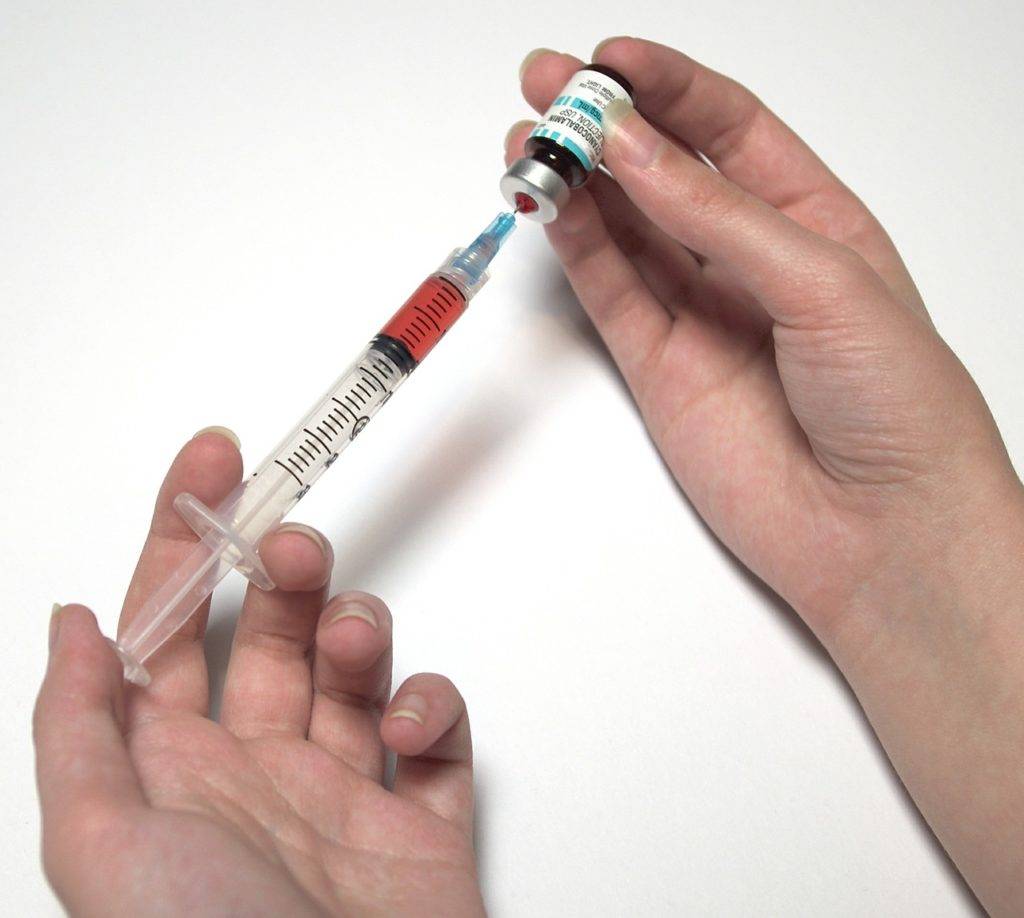Why Boosters Matter: Protecting Your Child Long-Term
Vaccines act like strong armor for your child’s body, keeping out harmful germs and diseases. But here’s something many parents don’t realize—that armor doesn’t last forever. Over time, the protection from some vaccines, like the ones given in early childhood, can wear off.

That’s why booster shots are so important. A booster is like a refresher course for the immune system. It helps the body remember how to fight off dangerous illnesses like tetanus and diphtheria, which can cause serious health problems. One of the most important booster shots is the Td vaccine.
The Td vaccine is designed to keep older kids and adults protected after their childhood shots start to fade. By keeping up with the Td booster schedule, parents can make sure their children don’t lose that critical layer of defense. It’s not just about today—it’s about building long-term protection for tomorrow.
What Does the Td Booster Protect Against?
Tetanus: The Silent and Dangerous Infection
Tetanus, sometimes called “lockjaw,” is a very serious illness. It’s caused by bacteria that live in soil, dust, and even animal poop. If your child gets a deep cut or scrape, the bacteria can enter the body and start making harmful toxins.
These toxins affect the nerves, which can lead to painful muscle cramps, stiffness, and even locking of the jaw—that’s why it’s called lockjaw. If not treated, tetanus can be deadly. It doesn’t spread from person to person, but it’s still a major risk if your child isn’t protected.
Diphtheria: A Dangerous Throat Infection
Diphtheria may seem like a bad sore throat, but it’s much more serious. This illness is caused by bacteria that infect the throat and nose. It creates a thick, gray coating in the throat, making it hard to breathe or swallow. Diphtheria can also cause heart problems, nerve damage, and death if not treated.
Unlike tetanus, diphtheria can spread from one person to another through coughing or sneezing.
Why Boosters Are Necessary: Keeping Immunity Strong
Your child’s early vaccines, like the DTaP series, are an essential part of building a healthy immune system. These shots protect against tetanus, diphtheria, and pertussis (also known as whooping cough). They work by teaching the body how to fight off dangerous germs. But over time, that lesson fades.
As children grow, the immunity from their baby and toddler vaccines starts to weaken. This doesn’t mean the vaccines stopped working—it just means the body needs a reminder. That’s exactly what a booster shot does.
Boosters Are Like a Refresher Course for the Body
Think of the immune system like a student. The DTaP vaccine gives it the first lesson. But if it doesn’t review that lesson regularly, it might forget. A booster shot like Td gives the immune system a quick review, so it remembers exactly how to fight tetanus and diphtheria fast and strong.
Without boosters, the risk of infection gets higher—especially for active kids who love to play outdoors, climb, ride bikes, or explore. Even a small cut or scrape could be an entry point for harmful bacteria. That’s why staying on schedule with booster shots is so important.
Booster shots keep your child’s protection strong and ready—no matter what adventures they take on.
Who Needs the Td Booster and When?
Keeping up with vaccine boosters can feel overwhelming—but knowing who needs the Td vaccine and when can make it easier to protect your family.
Adolescents: The First Booster Step
When kids reach 11 or 12 years old, it’s time for their Tdap vaccine. This shot is a booster that protects against tetanus, diphtheria, and pertussis (whooping cough). It’s the first update since they finished their baby vaccine series (DTaP), and it helps refresh their immune system as they enter the pre-teens.
Adults: Boosters Every 10 Years
After getting the Tdap booster as a teen, adults should get a Td booster every 10 years. It helps maintain long-term protection against tetanus and diphtheria—two diseases that can cause serious complications if not prevented.
If an adult never received the Tdap vaccine, they should get it as soon as possible—even if they already had a Td shot recently. This gives added protection against pertussis, which can still be dangerous, especially for infants and people with weak immune systems.
Wound Management: Extra Protection When It’s Needed Most

If you or your child gets a deep, dirty, or puncture wound, and it’s been more than 5 years since the last tetanus-containing shot, your doctor may recommend a Td booster. This is a smart precaution, since tetanus bacteria can enter through cuts and cause life-threatening symptoms.
Special Cases: When Tdap Isn’t an Option
In very rare situations, someone might have a severe allergic reaction to the pertussis part of the Tdap vaccine. If this happens, they can still be protected with Td boosters, which do not contain pertussis. These are used instead for future updates.
Td vs. Tdap: Which One Does Your Child Need?
When it comes to booster shots, parents often ask: What’s the difference between Td and Tdap? Both vaccines protect against tetanus and diphtheria, but there’s one big difference.
The Key Difference: Pertussis Protection
- Tdap includes protection against pertussis, also known as whooping cough—a serious illness that causes violent coughing and breathing problems.
- Td does not protect against pertussis. It only covers tetanus and diphtheria.
When to Get Tdap
- ✅ Recommended once during adolescence, around 11–12 years old
- ✅ Advised for adults who never got it before
- ✅ Strongly recommended during every pregnancy to protect newborns from whooping cough
When to Get Td
- 🔁 Given every 10 years after the first Tdap shot to maintain protection
- 🩺 Used if a person can’t receive pertussis vaccines due to a medical issue, such as an allergic reaction
Which One Is Right for You or Your Child?
In most cases:
- Tdap is the preferred choice for the first booster
- Td is the go-to for all future boosters, unless pertussis protection is also needed
💡 Tip: If you’re unsure which vaccine is due, checking your child’s immunization record and talking to your pediatrician is the best first step.
Safety and Side Effects
One of the biggest questions parents ask is: Are vaccine boosters safe? The answer is yes. Vaccines like Td and Tdap are very safe and are carefully tested before they’re ever used.
Most children and adults only experience mild, short-term side effects—if any at all. These are actually signs that the immune system is working.
✅ Common and Mild Side Effects
Here’s what you might notice after your child gets a Td or Tdap shot:
- Soreness at the injection site: Redness, swelling, or mild pain where the shot was given. This usually goes away in a day or two.
- Mild fever: A low-grade fever (under 101°F) is common and not dangerous. It’s a sign the body is building protection.
- Tiredness or crankiness: Your child might seem sleepy, fussy, or just not like their usual self for a short time.
- Headache or body aches: Some older children, teens, or adults may have light aches or headaches.
- Loss of appetite: It’s okay if they don’t eat much for a day or so—this typically passes quickly.
🚨 Rare But Serious Side Effects
Severe reactions are very rare, but it’s still important to know the signs. Call your doctor or get medical help right away if your child experiences:
- High fever (over 104°F)
- Trouble breathing
- Swelling of the face or throat
- Seizures
- A full-body rash
- Extreme drowsiness or not waking up easily
These signs could mean an allergic reaction or something more serious, and they should be treated right away.
💡 Remember
Most side effects are mild and go away on their own. If you ever have concerns after a vaccination, don’t hesitate to call your pediatrician or healthcare provider. They’re here to help.
Stay Protected: Keep Your Child Safe with the Td Booster

Keeping your child’s vaccinations up-to-date is one of the most powerful ways to protect them from serious diseases like tetanus and diphtheria. As kids grow, the shield of protection they got from their baby shots can wear off.
That’s why the Td booster is so important—it helps keep their immunity strong for years to come.
Here’s What Every Parent Should Remember:
- 💉 Tdap is given once during the tween years (around age 11–12) and is also recommended for any adult who hasn’t had it yet.
- ⏳ Td boosters are needed every 10 years after that to stay protected.
- 🩹 If your child gets a deep or dirty wound, and it’s been more than 5 years since their last tetanus shot, a Td booster might be needed right away.
To make sure your family is protected:
- ✅ Check your vaccination records
- ✅ Talk to your pediatrician
- ✅ Schedule any missing boosters
Understanding the difference between DTaP, Tdap, and Td vaccines can help you make smart, confident decisions for your child’s health. Don’t miss this helpful guide: DTaP, Tdap, and Td Vaccines Explained: A Parent’s Guide to Childhood Immunizations
🛡️ Staying informed and taking action now can prevent big problems later. You’ve got the power to protect your family’s future—one booster at a time.



